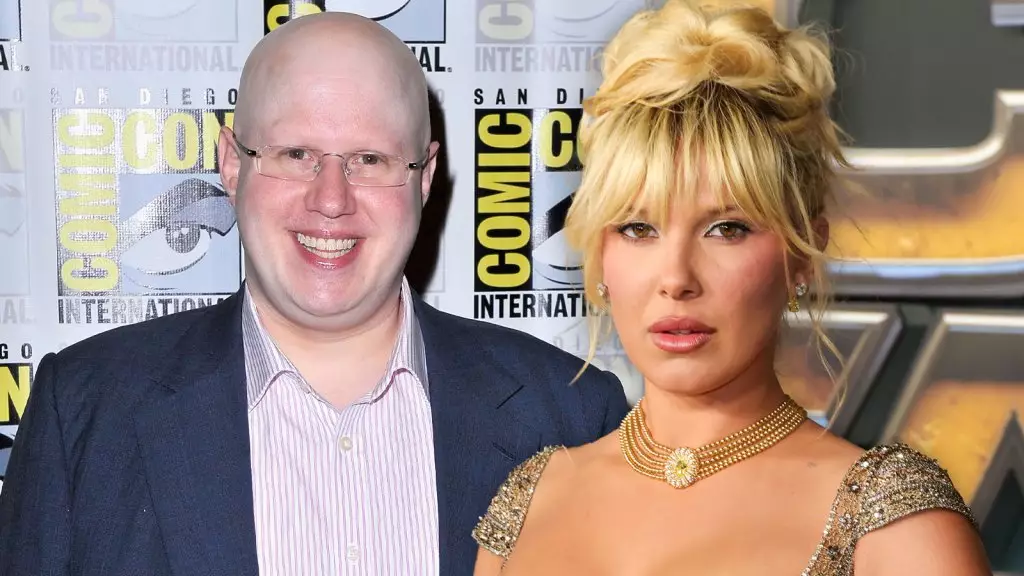In the digital age, where social media platforms wield the power to amplify voices, the scrutiny faced by young celebrities has reached alarming levels. The recent incident involving British actor and comedian Matt Lucas and the talented Millie Bobby Brown serves as a poignant reminder of how misplaced humor can easily morph into damaging commentary. Lucas offered an apology to Brown after innocently attempting to link her appearance to a character from his past. His intentions might have been lighthearted, but the impact of his words in an era where young women are already under a magnifying glass is far from trivial.
Public Figures Are Not Just Icons
Millie Bobby Brown, who catapulted to stardom as Eleven in “Stranger Things,” recently addressed the relentless critique of her appearance, emphasizing the persistent battle young women face in a culture that refuses to evolve with them. Every photo, every red-carpet event becomes fodder for internet trolls, denying young actresses the ability to grow into their identities without prejudice. Brown’s poignant statement highlights a grave issue: the fusion of media scrutiny with bullying.
While some may dismiss this as mere celebrity gossip, it is indicative of a broader societal failure to respect personal growth. Young stars are not just products of Hollywood; they are evolving individuals who deserve the same respect and understanding we offer to their older counterparts. Brown’s plea speaks to a collective responsibility we share in treating public figures not merely as entertainment but as actual people navigating very real challenges.
Empowerment Versus Objectification
In her response, Brown poignantly noted that much of the commentary surrounding her personal choices is steeped in brutality rather than support, especially from women who perpetuate these narratives. This dynamic begs the question: why do we frequently champion female empowerment only to undermine those very ideals at the first opportunity? The fact that headlines continue to focus on a young woman’s looks, as opposed to her achievements, illustrates a misplaced priority that values objectification over authenticity.
We should reconsider our roles as audiences and consumers of media. When adult writers dissect a young woman’s appearance for clicks, it sends a destructive message to impressionable audiences that it’s acceptable to reduce someone’s worth to superficial standards. Millie’s powerful assertion that she will not “make herself smaller” is a defiant stance against the unrealistic expectations placed upon women—especially young women—in the public eye. It’s a call for freedom, not just for her but for a generation facing similar challenges.
Building a Culture of Support
In light of this incident, it’s imperative that we rally around young stars like Millie Bobby Brown. Instead of feeding into the toxic narratives that claim their value lies in their appearance, we must cultivate a culture where achievements are championed, and individuality is celebrated. As we encounter stories within and outside the realms of Hollywood, we must remember the humanity behind celebrity personas.
The discourse surrounding Brown encapsulates the internal conflict many young women face. It’s not just about a change in physical appearance; it’s about grappling with societal expectations and reclaiming autonomy over one’s identity. We must let them grow—not just for their sake but for the future of all young individuals who aspire to thrive against adversity.


Leave a Reply